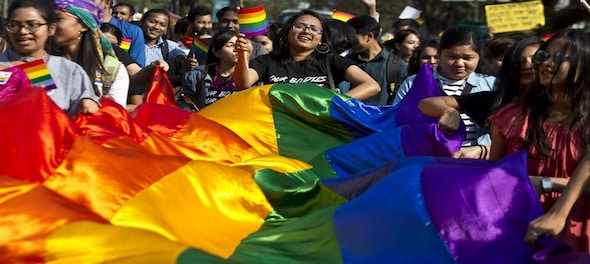
Hailing from a small town, coming out of the closet felt like a distant dream, however, 2018 changed it all. For me and many like me, September 6, 2018, was a day for empowerment. As we celebrate the third year of the path-breaking verdict by the Supreme court, let me tell you a little more about Section 377.
What is section 377?
Back when the British government had autonomous control over India in 1861, the country witnessed significant reforms that have impacted the lives of its residents to the very date. One such example is Section 377; although it was abolished in 2018, the LGBTQ+ community had to survive several decades of public humiliation and discrimination.
Section 377 of the Indian Penal Code strictly prohibited homosexuality and same-sex relationships, with life imprisonment being the punishment. To put it more straightforwardly, sexually engaging with an individual of the same gender was punishable by law, leaving people of the community feeling unrecognised and neglected. This meant that people belonging to the LGBTQ community were forced into fighting their desire and sexual orientation with the fear of being labelled as "unnatural."
September’18 - When the darkness saw a ray of sunshine, we rejoiced!
September 6, 2018, marked a major stepping stone in the history of India with Indians proudly waving pride flags high up in the sky and celebrating love, for Section 377 had finally been decriminalised. There were no boundaries for love anymore; people were given the freedom to love regardless of gender, age, and sexual orientation. With the sense of safety, security, and relief spreading across India like a wave, the queer community began to feel more accepted and confident in Indian society.
The abolishment verdict, also popularly known as the "victory of love," was applauded by individuals across India, which led to the news being widely spread in deep-rooted pockets of the country and not just the developed and progressive cities.
As the word spread more extensively and same-sex relationships began to get normalised, members of the LGBTQ community began to feel accepted in the eyes of the law, right from people hailing from big cities to small towns. Several community members started considering September 6 as their second birthday because they felt reborn and were finally given the freedom to live life on their terms, as per their own will.
How do the many Indias within India feel about this?
While the abolition of Section 377 was the first step towards acceptance as the country's apex court ceased to consider homosexuality a crime, we still have a bigger battle to fight—the battle of societal norms.
While the free flow of information across languages has ensured a lot of knowledge sharing and people starting to accept the third gender, we still have a long way to go. The development of micro-communities in smaller cities has helped spread the message and make the community members feel at home but from a social standpoint, we need to reach a point where there’s absolutely no discrimination between the three genders.
What can all of us do to build an inclusive India?
From a law standpoint - The next step towards further acceptance would be to legalise same-sex marriage, and that is when Indians can stand tall and proudly say that all forms of love are accepted in the many Indias of India.
For the society - The third gender is a part of the highly respected Indian mythology, if they could accept us, you must too!
And for my fellow community members - There’s no bigger acceptance than self-acceptance, so feel free, be yourself and more importantly, just own yourself!
The author Palash Borah is CSR Manager at Blued INDIA. The views expressed are personal.
(Edited by : Kanishka Sarkar)
First Published: Sept 25, 2021 9:23 PM IST
Check out our in-depth Market Coverage, Business News & get real-time Stock Market Updates on CNBC-TV18. Also, Watch our channels CNBC-TV18, CNBC Awaaz and CNBC Bajar Live on-the-go!


I.N.D.I.A. bloc committed to predictable and stable tax environment: Jairam Ramesh
May 21, 2024 6:33 PM
Exclusive | INDIA bloc will ensure stable policy framework, simple GST, end tax terrorism: Jairam Ramesh
May 21, 2024 5:02 PM
Cong leaders 'failed' to protect party's constitution says FM Nirmala Sitharaman in Bihar
May 21, 2024 4:01 PM
Who will succeed Modi? Oppn thinks Amit Shah will, but PM said this
May 21, 2024 2:38 PM

